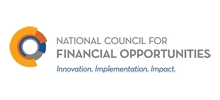TrustPlus draws on 30 years of leadership and expertise

TrustPlus draws on 30 years of leadership and expertise

TrustPlus draws on 30 years of leadership and expertise

TrustPlus helps businesses and organizations maximize worker financial health and productivity while coaching workers to take control of their financial future.
TrustPlus helps businesses and organizations maximize worker financial health and productivity while coaching workers to take control of their financial future.
As a nonprofit social enterprise, we’re objective, expert guides, motivated solely by worker financial health. TrustPlus Personal Finance Coaches work one-on-one with workers on an ongoing basis to optimize debt, strengthen credit, and build savings. These ongoing relationships lead to ongoing impact for workers and sustainable value for our customers and partners.
We’ve honed our proprietary Personal Finance Coaching model over three decades, serving nearly 100,000 workers through organizations, financial institutions, and FinTechs of all sizes from New York to California.
As a nonprofit social enterprise, we’re objective, expert guides, motivated solely by worker financial health. TrustPlus Personal Finance Coaches work one-on-one with workers on an ongoing basis to optimize debt, strengthen credit, and build savings. These ongoing relationships lead to ongoing impact for workers and sustainable value for our customers and partners.
We’ve honed our proprietary Personal Finance Coaching model over three decades, serving nearly 100,000 workers through organizations, financial institutions, and FinTechs of all sizes from New York to California.
The Human Faces of TrustPlus
The Human Faces of TrustPlus
Informed by the latest behavioral economics research, TrustPlus delivers an unparalleled worker experience that drives action and supports workers in taking control of their financial future.
- While most employers now offer some form of financial wellness benefit, Personal Finance Coaching remains a largely untapped resource for businesses and organizations nationwide. So, if you’re here, then you’re a smart leader. Good work.
- Only one in four (24 percent) HR professionals say their employer offers Financial Coaching to all employees. Meanwhile, most of the coaching that is offered is not personal to the employee. It is typically delivered via digital tools or generic group training sessions.
- Our award-winning, proprietary approach blends human connection with action-oriented tools and workplace products. TrustPlus Personal Finance Coaches demystify personal finance with empathy. Available on-demand via phone, video chat, or text, TrustPlus supports your workers with customized help on everything from debt collections to tax credits, direct deposit to budgeting.
Demand For Financial Health Benefits Skyrockets
Demand For Financial Health Benefits Skyrockets
Employer and employee demand for financial health benefits is at an all-time high. Employers now feel more responsible for their employees’ financial wellness than ever before.
A decade ago, 41 percent of employers felt responsible for employee financial wellness. Today, that number has more than doubled to 97 percent, according to Bank of America.
Part of this historic spike is caused by the fact that employees need and increasingly expect help. Overall, 82 percent of employees now expect their employers to play a role in supporting their financial wellness.
Millennials and Gen Z workers, especially, expect employers to offer benefits and financial wellness support that previous generations couldn’t even imagine. They face financial challenges that their parents and grandparents did not. Millennial workers, twenty- to forty-somethings, are worse off financially than their parents’ generation for the first time in U.S history. At the same time, only one in ten or so Gen Z workers coming up behind them rate their financial wellness as high according to TIAA. Decades-high inflation and broader changes in our system of jobs and benefits have eroded the financial health of the U.S. workforce to the point where most U.S. workers have little shot at financial security. This reality is bad for businesses, organizations, and employees.
Financial stress hampers worker productivity and physical health, and adds to mental health challenges. It leads to higher rates of turnover. Employers increasingly understand these effects. This growing understanding leads to a growing demand for financial health benefits among employers. And it also contributes to the seismic shift afoot in feelings of responsibility among employers for their employees’ financial health.
Employers now know that most workers are stressed about money. It used to be that this stress largely fell on the shoulders of lower- and moderate-income workers. No longer. 63 percent of U.S. workers now live paycheck to paycheck including, nearly half of employees earning at least $100,000 per year.
Employers now know that most financially stressed employees are distracted by their finances at work and spend at least three hours per week on personal finance issues during work time.
And, increasingly, employers now know the connections among employee financial health, recruiting, retention, and productivity.
Given the seismic shift afoot, now is the time for you to maximize the benefits of a financially healthy workforce.
Schedule a time to speak with TrustPlus about harnessing the benefits of a financially healthy workforce.
Schedule a time to speak with TrustPlus about harnessing the benefits of a financially healthy workforce.
Select Customers and Partners











TrustPlus helps customers and partners from Fortune 500 companies to small nonprofits, financial services and FinTech partners to membership organizations to maximize worker health, productivity, and financial security.
Select Customers and Partners











TrustPlus helps customers and partners from Fortune 500 companies to small nonprofits, financial services and FinTech partners to membership organizations to maximize worker health, productivity, and financial security.
Select Customers and Partners











TrustPlus helps customers and partners from Fortune 500 companies to small nonprofits, financial services and FinTech partners to membership organizations to maximize worker health, productivity, and financial security.
Invest in Worker Financial Health
Financial stress hampers worker productivity and physical health and adds to mental health challenges. It leads to higher rates of turnover.
TrustPlus Personal Financial Coaches work one-on-one with workers on an ongoing basis to reduce financial stress by optimizing debt, strengthening credit, and building savings.
As a nonprofit social enterprise, we’re objective, expert guides motivated solely by worker financial health. Whether you’re looking to enhance recruiting and retention, reduce worker stress and absenteeism, or improve mental health and the bottom line, TrustPlus is the solution for you.

Schedule a callOr email us with questions today

Schedule a callOr email us with questions today
Invest in Worker Financial Health
Financial stress hampers worker productivity and physical health and adds to mental health challenges. It leads to higher rates of turnover.
TrustPlus Personal Financial Coaches work one-on-one with workers on an ongoing basis to reduce financial stress by optimizing debt, strengthening credit, and building savings.
Whether you’re looking to enhance recruiting and retention, reduce worker stress and absenteeism, or improve mental health and the bottom line, TrustPlus is the solution for you.



